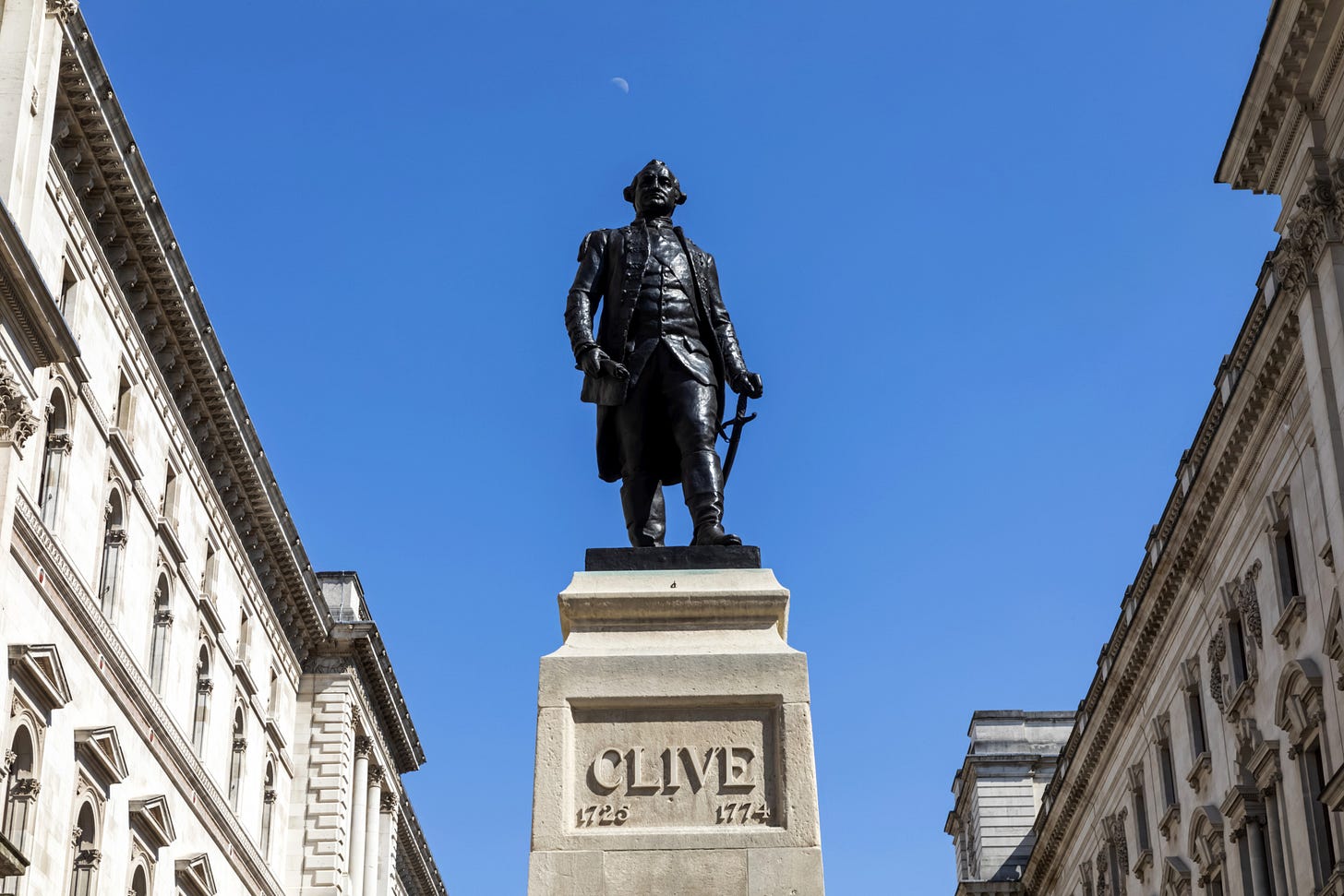Toppling statues isn’t progressive
Calls to remove Clive of India’s statue won’t change the past. They’ll just help us to forget it.
‘Who controls the past controls the future; who controls the present controls the past.’ When George Orwell wrote these words in Nineteen Eighty-Four, could he have possibly anticipated how relevant they would be in 2025? This particular quotation invariably springs to mind whenever today’s activists call for the demolition of statues and historical landmarks. Many woke ideologues are rarely happier than when taking a hammer and chisel to a historical figure who fails to live up to their illiberal dogma.
Just this week we heard Labour peer Thangam Debbonaire calling for the removal of the statue of Robert Clive outside the Foreign Office in London. More commonly known as ‘Clive of India’, Clive was a colonial administrator who played a key role in establishing British domination for the East India Company. Regarding the statue, sculpted by John Tweed in 1912, Debbonaire had this to say:
‘I don’t think it’s helpful for any visitor to the Foreign Office, particularly those of us from Indian origins in the diaspora, but also visiting Indian people, Indian dignitaries, ambassadors, trade ministers, to walk into the Foreign Office past that statue. I don’t think that presents Britain in a particularly good light in the 21st century.’
History can be reinterpreted, but the facts cannot be changed. While many of us understand and share many of Debbonaire’s concerns about the morality of colonialism, this does not mean that we should pretend that it did not happen. The very existence of public statues of colonialists tell us something about the time in which they were erected. The desire to sanitise our history in this way is, ultimately, counter-productive.
It is also authoritarian. Those who seek to obliterate landmarks which commemorate morally dubious aspects of history are unilaterally deciding that other people should be deprived of their choice to see them. They are high-handedly overruling the agency of future generations who might have other ideas about how best to reckon with the past. It is akin to censoring books that we personally find offensive. Why not simply choose not to read the book rather than preventing others from doing so?
Debbonaire had previously supported the removal of the statue of Edward Colston in Bristol in the wake of the Black Lives Matter protests and riots. Colston was a seventeenth-century merchant and philanthropist whose wealth was partly derived from his senior role in the Royal African Company, which trafficked enslaved Africans. Never had there been a more obvious case of the privileged middle-classes trying to anchor themselves to someone else’s cause. One of those who was eventually charged with the toppling of the statue was called Milo Ponsford, a name so ludicrously self-satirising that I did wonder whether he had concocted it to troll his critics.
— To continue reading this article, please consider becoming a paid subscriber —



